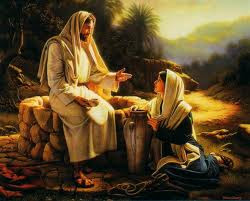
Matthew 11: 1-19, Luke 7:18-35. John the Baptist
The two disciples of John the Baptist asked him if he was the Messiah or if they should look for someone else. If I had been with the disciples of John the Baptist, I would have told John that I saw Jesus cure many of their illnesses, cast out spirits and give sight unto the blind. The lepers were cleansed, the deaf could hear, the dead were raised, and the gospel was preached.
John the Baptist did not doubt that Christ was The Messiah. His disciples were so loyal to him that they were reluctant to leave him and follow their true Master, so he sent them away, telling them to go and ask Christ questions so that they could learn the answers to their questions in hopes that they would gain a testimony for themselves that he was the Son of God.
John the Baptist is considered among the greatest of prophets because of his true devotion to Christ. His entire life was devoted to bringing people to Christ. The scriptures say that there was no greater prophet than he. The Prophet Joseph Smith taught us that no other man was entrusted with the divine mission of preparing the way for the coming of Christ. He also taught that no other man was entrusted with baptizing the Savior. And thirdly, Joseph Smith taught us that at the time, John had the only power and authority, because he was the son of Zacharias, at that time, and the Jews were obligated to obey his instructions.
In John 3:30 it says, “He must increase, but I must decrease.” To me, that means that Christ will always be our Savior and we need to be humble. John was very humble and so willing to serve. We need to humble ourselves and remember the sacrifice that Christ made for us.
John was such an amazing example and hero. He spent his entire life in the service of Christ, bringing people unto Christ. He spent his entire life in the service of Christ, bringing people unto Christ. He not only was the Savior’s cousin, but I’m sure he was a friend and confidant. He was truly amazing.


